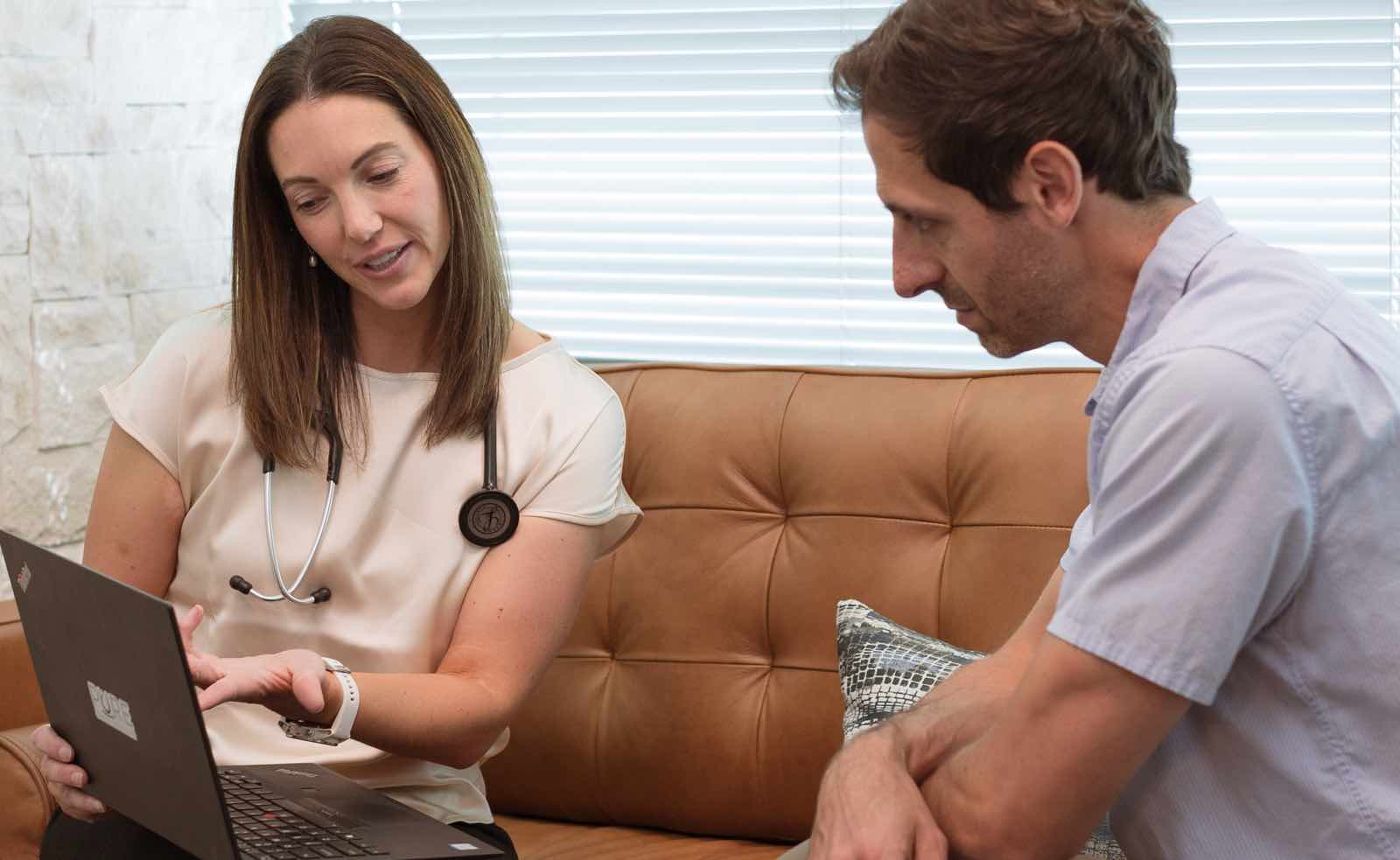esting for COVID-19 is rapidly expanding in the Denver metro area, this guide contains information on how to get tested for coronavirus if you are symptomatic or want to know if you have developed COVID-19 antibodies.
Please bookmark this page as we will keep it updated as new info becomes available.
Last updated 6/10/2020
Antigen Testing
When you are actively ill with coronavirus, antigen testing can detect the viral particles in a nasal swab. Knowing if you have coronavirus will help you take the proper precautions to prevent spreading it to others, and to monitor your symptoms for concerning complications such as shortness of breath.
Here is how you can get tested:
First - contact your primary care doctor
If you are established with a primary care doctor (family medicine physician or internal medicine doctor) they are your best bet at getting tested. Call them and see what their protocol is for testing. At Pure Family Medicine, we start with a telemedicine visit for any patient who is symptomatic, and will test patients from their car, making it more convenient for them if they are sick, and protecting our other patients from exposure when they come to our office.
If you don't have a primary care doctor
1. Denver is offering free community testing at the Pepsi center, learn more and reserve a test at denvergov.org.
2. An at home test is available from Labcorp. Read more about this test here. You can order it directly on their website.
3. If you are in a high risk job category, call 303-692-2700 and you will be directed to a testing facility.
High risk job categories include:
- Healthcare workers
- Group housing workers
- Jail workers
- Long-term care facility workers
4. Check this map from the Colorado Department of Public Health for a list of all community testing sites. Governor Polis has said that antigen testing at state-supported testing sites will be free of cost.
Antibody Testing
COVID-19 antibody tests can detect if you have been exposed to coronavirus and developed an immune response. The hope is that a positive antibody test means you are immune to reinfection, however studies are needed to determine if this is true, and if so how long the immunity lasts. Regardless, this can be a valuable piece of information to determine if you have been exposed or infected.
Antibody tests are just starting to become more widely available. Most tests try to detect IgG antibodies, which typically rise around a week after symptoms start. Some tests also look for IgM antibodies, which rise around 3 days after symptoms, but typically start falling 7 days after symptoms arise.
Here is how you can get a COVID-19 antibody test:
Contact your primary care physician
Your family doctor is your best bet at this time for a coronavirus antibody test. As major commercial labs start offering these tests, primary care practices already have a relationship with these labs and can help you get tested.
At Pure Family Medicine, we offer antibody testing for our members. The cost is $59 per antibody (IgG is typically all we will test, however we can also test for IgM and IgA), and if you have insurance we are being told the cost is $50 per antibody. We can draw a blood sample right in our office and send it to the lab.
If you don't have a primary care doctor
Quest and Labcorp are offering antibody testing without a doctor's order, check out more information through Quest's website. or through Labcorp's website.
We will keep this page updated as new testing information becomes available.
*DISCLAIMER: The information in this article is not intended and should not be construed as medical advice and is not a substitute for professional medical care. If you or someone you know has a medical concern, please contact your physician or healthcare provider. Do not delay care because of something you may have read on this website. If you think you are having a medical emergency, call 911 right away.
















